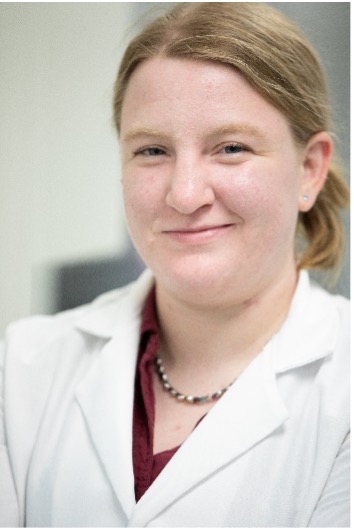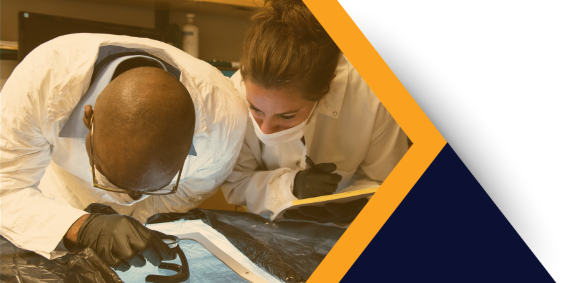Meet Dr. Heather Deter

Dr. Heather Deter
Advisor: Dr. Ting Lu
Institution: University of Illinois Urbana-Champaign
Bio: Dr. Heather Deter is currently a Postdoctoral Research Associate in the Department of Bioengineering at the University of Illinois Urbana-Champaign (UIUC). She received a B.S. in Microbiology from the University of Georgia in the spring of 2016. Dr. Deter then began graduate school and started studying synthetic biology under the supervision of Dr. Nicholas Butzin. Her dissertation research focused on multilevel regulation in synthetic systems and systems related to antibiotic tolerance and persistence. She received her Ph.D. in Biology from South Dakota State University in the summer of 2020. Afterwards, Dr. Deter began working under the supervision of Dr. Ting Lu at UIUC, where she studies how synthetic systems interact with and affect host-cell physiology. Dr. Deter is currently continuing her work at UIUC as part of the Intelligence Community Postdoctoral Research Fellowship Program. In the future, Dr. Deter intends on becoming a university professor, which will allow her to teach and run her own synthetic biology research group.
Abstract:
Synthetic biology, the design and construction of biological systems, has rapidly advanced since the turn of the 21st century. Modern synthetic circuits are steadily increasing in complexity with a wide range of positive and negative applications. It has become apparent as synthetic biology gains traction that there is a need to control the propagation of microbes with potentially harmful synthetic circuits. Identifying and differentiating synthetic systems from natural ones is a critical step towards controlling new biological strains, but it is challenging. Natural and synthetic systems are difficult to distinguish because all biological systems rely on the same fundamental parts (e.g. DNA). While natural systems have evolved to effectively distribute limited resources within the cell, synthetic systems draw resources away from host systems and artificially limit resource availability. As such, synthetic gene circuits alter cell physiology beyond their intended design. Here I propose to focus on how the behavior of a synthetic circuit in a host cell can differentiate it from natural systems and explore how those differences should inform antimicrobial strategies to control the propagation of microbes containing synthetic systems. To do so we will quantify the relationship between synthetic circuits (gene constructs not native to the host) and host physiology. We will also probe how changes in host physiology alter antibiotic susceptibility, which impacts the control and eradication of synthetic microbial species. This data will enable us to develop a new approach for the identification of foreign gene circuits and predict the most effective antibiotic treatment options to eradicate hosts containing synthetic gene circuits.



